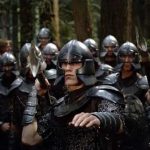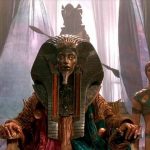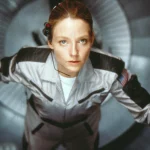🎬 Apocalypse Now (1979): A Descent into Madness Amid the Chaos of War

The Brutality of Vietnam, the Madness of Man, and the Ultimate Question of Morality
- Director: Francis Ford Coppola
- Main Cast: Martin Sheen, Marlon Brando, Robert Duvall, Dennis Hopper
- Genre: War, Drama, Psychological Thriller
- Release Date: August 15, 1979
Apocalypse Now (1979) is a haunting exploration of the psychological toll of war, directed by Francis Ford Coppola and inspired by Joseph Conrad’s novella Heart of Darkness. The film takes viewers deep into the heart of the Vietnam War, blending gritty war sequences with surreal, mind-bending imagery that questions the very nature of morality, authority, and humanity itself. With powerful performances from Martin Sheen and Marlon Brando, Apocalypse Now is widely considered one of the greatest war films ever made.
What to Expect:
- A Nightmarish Journey into the Heart of War:
- The film follows Captain Benjamin Willard (Martin Sheen) on a secret mission to assassinate Colonel Kurtz (Marlon Brando), a rogue officer who has taken command of a local tribe deep in the Cambodian jungle. As Willard ventures further into enemy territory, the film spirals into a nightmarish exploration of the horrors of war and the madness it unleashes in men.
- Exploration of Psychological Collapse:
- Apocalypse Now is as much about the inner turmoil of the human psyche as it is about the Vietnam War. Willard’s journey becomes an allegory for the psychological unraveling that war brings about, as he slowly begins to question his mission, his superiors, and his own sanity.
- Marlon Brando’s Mesmerizing Performance:
- Marlon Brando’s portrayal of Colonel Kurtz is both eerie and captivating. His enigmatic presence looms over the film even before he appears on screen, and when he finally does, his philosophical musings on the nature of war and humanity make for some of the most compelling moments in cinema history. Kurtz’s famous line, “The horror, the horror,” captures the essence of the film’s grim outlook on the human condition.
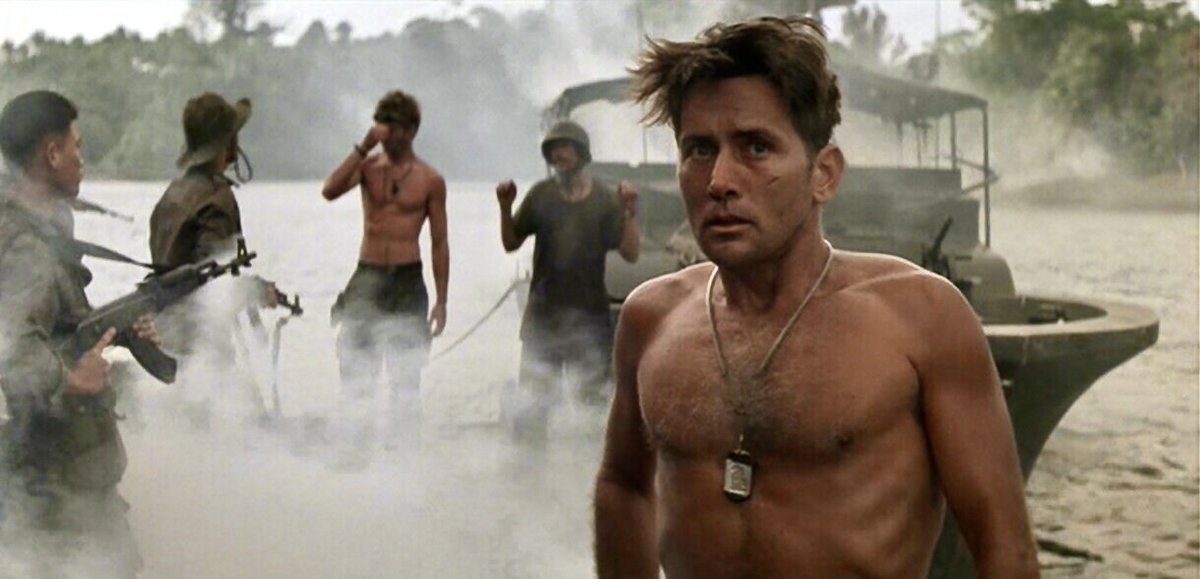
- Stunning Cinematography and Surreal Imagery:
- The cinematography by Vittorio Storaro is visually striking, with scenes like the infamous helicopter attack set to Wagner’s Ride of the Valkyries remaining iconic. The use of light and shadow, coupled with surreal, dreamlike sequences, mirrors the characters’ descent into madness, creating an atmosphere that is both mesmerizing and disorienting.
- Themes of Power, Corruption, and Moral Ambiguity:
- At its core, Apocalypse Now is a study of power and moral ambiguity. As Willard gets closer to Kurtz, the line between hero and villain blurs. The film challenges the viewer to confront uncomfortable questions about authority, the justification for violence, and the nature of good and evil in the context of war.
Cinematic Techniques:
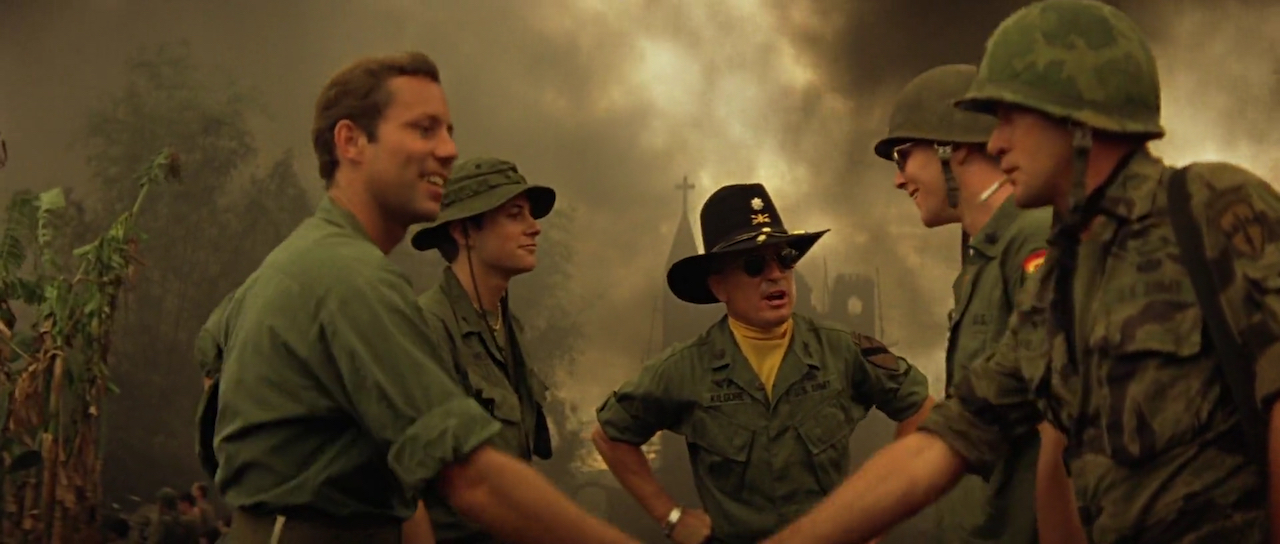
- Unorthodox Filmmaking Process:
- The film’s chaotic production mirrored the chaos depicted on screen, with numerous setbacks, casting changes, and conflicts that nearly derailed the project. Despite these challenges, Coppola’s ambitious vision shines through, with Apocalypse Now delivering a raw and unflinching portrayal of war unlike any other.
- Use of Sound and Music:
- Sound plays a crucial role in creating the film’s haunting atmosphere. From the roaring helicopters to the eerie silence of the jungle, the sound design immerses the audience in the chaos of Vietnam. The soundtrack, including The Doors’ “The End” and Wagner’s Ride of the Valkyries, adds layers of emotional intensity and underscores key moments.
- Philosophical Dialogue:
- The dialogue in Apocalypse Now is laden with philosophical undertones, particularly in Kurtz’s monologues. His reflections on war, civilization, and morality elevate the film beyond a simple war movie, transforming it into a deep meditation on the human condition.
Legacy and Influence:
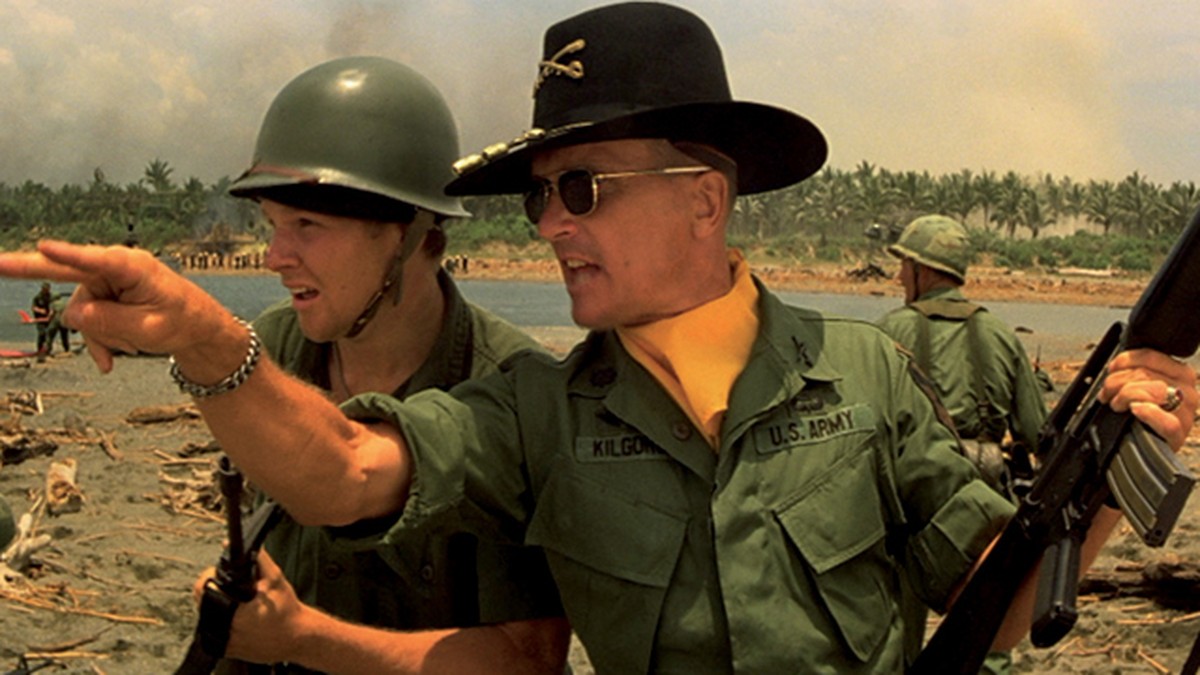
- A Defining War Film:
- Apocalypse Now has been lauded as one of the greatest war films ever made. Its unflinching depiction of the brutality of war and its psychological effects has left a lasting impact on both the genre and audiences around the world. It continues to influence filmmakers tackling the subject of war and human nature.
- Cultural Impact:
- The film’s influence extends beyond cinema, with its iconic imagery and quotes permeating popular culture. Lines like “I love the smell of napalm in the morning” have become part of the cultural lexicon, symbolizing both the absurdity and horror of war.
- Multiple Versions:
- The film has seen various cuts over the years, including the original 1979 version, the Apocalypse Now Redux (2001), and the Final Cut (2019). Each version offers a slightly different experience, with extended scenes and additional material that delve even deeper into Coppola’s vision.
Conclusion:
Apocalypse Now is not just a war movie; it is a harrowing journey into the darkest corners of the human soul. With its masterful direction, stunning visuals, and unforgettable performances, the film remains a cinematic masterpiece that continues to resonate with audiences. Its exploration of madness, power, and moral ambiguity makes it a timeless reflection on the consequences of war and the fragility of human sanity. For anyone seeking a thought-provoking and visually arresting film, Apocalypse Now is essential viewing.
